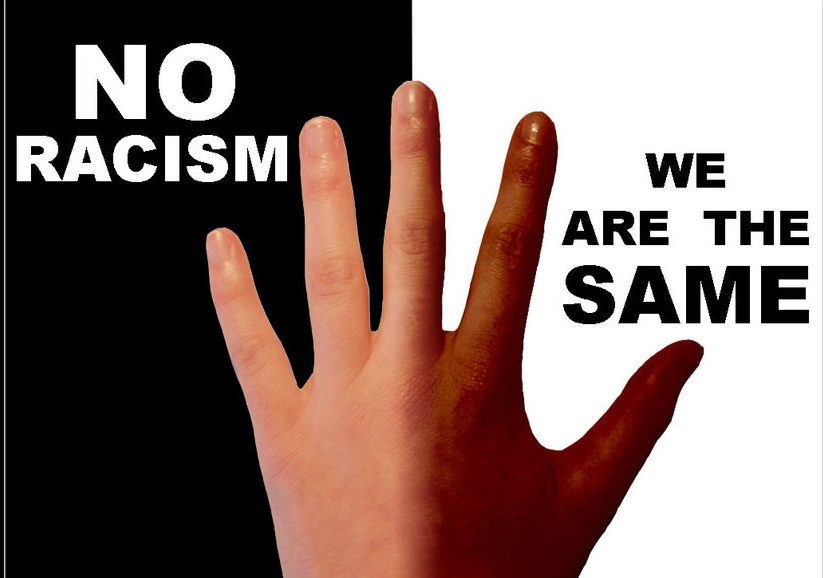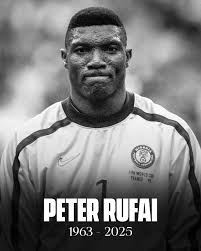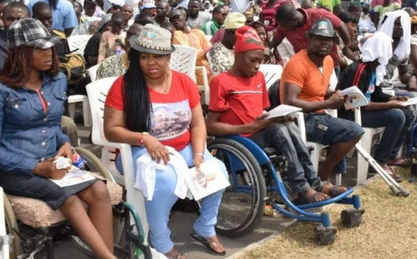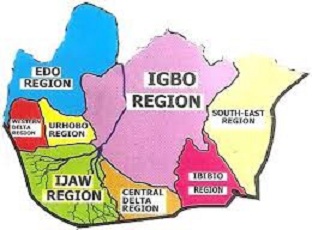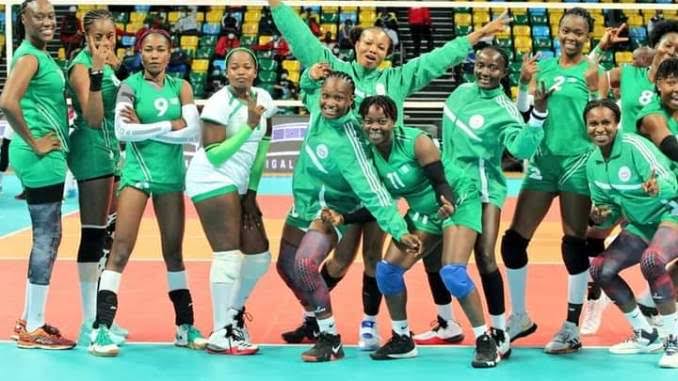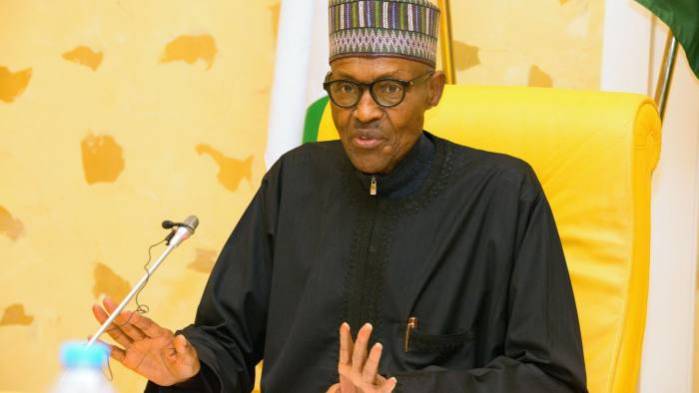The world recently marked International Day for the Elimination of Racial Discrimination. The question, therefore, is when will racism come to an end?
“I have a dream that my four little children will one day live in a nation where they will not be judged by the colour of their skin, but by the content of their character. I have a dream today!”
That is an extract from the speech delivered by the famous United States of America civil rights activist, Martin Luther King Jr. in 1963, which was aimed at eliminating racial discrimination.Recently, when the world marked the International Day for the Elimination of Racial Discrimination, the many problems associated with it came to mind.
Racism is the belief in the superiority of one race over another, which often results in discrimination and prejudice towards people based on their race or ethnicity. It is a problem all over the world today. Findings have shown that it is more prevalent in Europe where many Africans now go in search of greener pastures. This is usually at a cost. Their dignity is sometimes at stake. The most recent is the infamous “Libyan slave trade” where many people from African countries are being sold into slavery.
March 21 of every year is a day that has been earmarked by the United Nations Educational, Scientific and Cultural Organization (UNESCO) against racism. How did this day come into being? On March 21, 1960, police opened fired and killed 60 people at a peaceful demonstration against apartheid laws in Sharpeville, South Africa. Six years later (1966), the United Nations General Assembly called on the international community to double its efforts to eliminate all forms of racial discrimination.
While other countries of the world may see it as a normal day and go about their regular activities, the situation is different in South Africa. March 21 is a public holiday in South Africa. This is in commemoration of lives that were lost in the fight for democracy and equal human rights in the country during the apartheid regime, which embraced racial segregation.
The massacre of blacks by white policemen in Sharpeville, South Africa on March 21, 1960, is the main reason for the public holiday. Every year the International Day for the Elimination of Racial Discrimination is under one specific theme. Last year’s theme was Racial Profiling and Incitement to Hatred, within the context of migration.This year (2018), the theme is: Promoting Tolerance, Inclusion, Unity and Respect for Diversity in the Context of Combating Racial Discrimination.
This day in general, promotes an egalitarian society in which people are not discriminated against on the basis of race. In the past, there have been movements established to put an end to racial discrimination. Movements such as the Civil Rights Movement and the Anti-Apartheid Movement in South Africa were examples of anti-racist movements. Non-violent resistance, a method applied by the late civil rights activist, Martin Luther King Jr. is sometimes embraced as an element of anti-racist movements, although this was not always the case.
Hate crime laws, affirmative action, and bans on racist speech are also examples of government policies that are intended to suppress racism.Some other notable groups in the United States of America were, the Nation of Islam and Black Panther. Notable figures like Marcus Garvey, Malcolm X and Martin Luther King Jr. were at the fore-front in the struggle against racial discrimination.
In South Africa, Nelson Mandela was jailed for 27 years during the apartheid regime in South Africa for going against the oppressive apartheid regime in the land. But how well has this day (March 21) helped to curb racism? It is sad that despite efforts to put an end to racism by UNESCO, an agency of the UN, it still prevails in many parts of the world.
In Europe, for instance, there is the rise of xenophobia which is the dislike of or prejudice against people from other countries, especially non-whites. On November 1, 2003, the Associated Press presented a special report on the massive human rights abuses at Abu Ghraib, a prison in Iraq that was controlled by the United States. Their report stated that “In Iraq’s American detention camps, forbidden talk can earn a prisoner hours bound and stretched out in the sun, and detainees swinging tent poles rise up regularly against their jailers, according to released Iraqis.”
The report went on to describe abuse of the prisoners at the hands of their American captors: “They confined us like sheep,” freed Saad Naif, 38, said of the Americans. “They hit people. They humiliated people.” In response, U.S. Brigadier-General Janis Karpinski, at the time in charge of all U.S. detention facilities in Iraq, claimed that prisoners were being treated “humanely and fairly” because of the colour of their skin.
READ ALSO: THE NIGHT FOOD BUSINESS OF LAGOS
Last year, there was the famous ‘Brexit.’ The British in a xenophobic move, voted to leave the European Union. That was done in order to reduce the number of migrants to the United Kingdom. The conservatives who are far-right complained that the jobs belonging to the UK citizens had been taken over by non-whites.
Another major setback for the elimination of racial discrimination is the present state of the United States of America. In the U.S., President Donald Trump won his election by using racial slurs. His campaign slogan was “America first.” While the world condemned some of Trump’s campaign rhetorics, it resonated with the conservative Americans who are not comfortable with other races and ethnic nationalities in their country. Trump’s style of campaign allegedly saw the rise of extrajudicial killings of African Americans in many parts of the United States by the police.
In South Africa, there have been xenophobic attacks also. Nigerians are the main targets. Like the British, South Africans are also complaining that foreigners are taking over their jobs. In return, they unleashed mayhem on Nigerians, looting, maiming and vandalising their belongings.
The most shocking of all racial and ethnic discriminations happened recently in Libya where sub-Saharan Africans were being sold as slaves for paltry sums. Most of them were Nigerians. The world got wind of the modern day slavery when a CNN seasoned correspondent, Nima Elbagir, helped break the story about the “Libyan slave trade” in November 2017. In her report, there was a video which showed Africans in a dehumanizing condition. They were kept in concentration camps believed to have been built by Europeans who had warned the Libyan authorities not to allow Africans use their country as a transit to Europe.
How does the UN plan to put an end to racial discrimination in the face of the aforementioned setbacks? According to Irina Bokova, UNESCO Director-General, “The more we respect others, the more we respect ourselves.” Speaking on behalf of the UNESCO, she said, “One of the strongest ways to combat racial discrimination is education. In this spirit, UNESCO works with teachers, museums and publishers to try to combat stereotypes that stigmatize individuals and peoples because of the colour of their skin, their origin or their affiliation.”
Speaking further, she said: “This fight starts in the mind of each of us, and must be conveyed in every way possible. For instance, UNESCO and the Musée de l’Homme are organizing an exhibition to be held in Paris from March on the theme: Us and Them – From Prejudice to Racism.
“Sport is also a powerful tool for inclusion and that is why UNESCO is waging a campaign with Juventus FC, Radio PRISA and the Santillana Foundation to combat racism in football, through the campaigns “#what colour?” “Sin respeto no hay juego” and “#Together4InclusiveSport” with the Tolerance Center in Moscow.”
In a chat with The Next Edition, Tunji Balogun who resides in Canada said, “Racial discrimination will continue to happen if we as Africans don’t develop our land. While I commended the UN for its efforts, we as Africans and people of other races other than whites need to help ourselves. The more we travel to Europe and America in search of greener pastures, the more they look down on us. Take Nigeria for instance, we have the human and material resources to put our country in order. But due to underdevelopment, our people run out of the country. Mark my words; there is no developed country in the world that respects us.”
In reaction to Donald Trump’s building of wall and Brexit by the United Kingdom all aimed at shutting out ethnic minorities, the UN admonishes that: “In a world of diversity, understanding and respect of others constitute the only possible path. Building walls to keep other people out often means keeping ourselves shut in. Our diversity is strength: let us learn how to draw on it for the resources of inventiveness, creativity and peace.”
